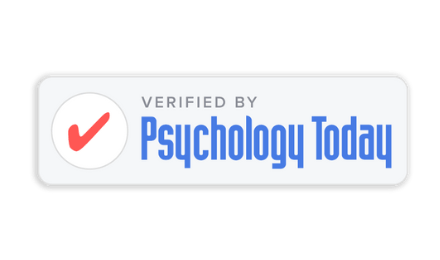Workplace anxiety is a common and challenging aspect of professional life for many individuals. Anxiety can manifest as panic attacks, social anxiety, or generalized anxiety, and left unaddressed, it can significantly interfere with productivity, job satisfaction, and overall quality of life. This informative and educational blog post will provide valuable insights and tips on recognizing and managing workplace anxiety and effective stress management techniques.
Maintaining mental well-being in the workplace is essential, as it can impact not just job performance but also relationships with colleagues, supervisors, and company culture. Furthermore, navigating anxiety in the professional sphere can be especially critical for those who may face additional stressors, such as LGBTQ+ individuals coping with discrimination or stigma.
Blue Sky Wellness Clinic recognizes the importance of addressing workplace anxiety and offers in-person and online counselling services to support individuals in establishing healthy coping mechanisms and achieving professional fulfillment.
The first section of this blog post will discuss the causes and symptoms of workplace anxiety, illustrating how anxiety may present itself in various work-related settings, such as in meetings or while managing deadlines. Understanding these triggers can empower individuals to address their concerns proactively and seek appropriate support.
The second section will cover practical tips and techniques for managing stress in the workplace. This includes strategies such as breaking down tasks into manageable segments, prioritizing self-care, developing effective time management skills, and fostering a positive work-life balance. The goal is to provide actionable advice that readers can incorporate into their daily work routines to help alleviate anxiety and stress.
The third section will focus on resources and support available for managing workplace anxiety, including professional therapy, employee assistance programs (EAPs), and local or online support groups and communities. The importance of seeking help from trusted sources and utilizing available resources will be emphasized to promote a healthy and supportive work environment.
The final section will address the unique challenges that LGBTQ+ individuals may face with workplace anxiety and stress. Specific tips and resources will be provided to ensure inclusive and tailored support for our LGBTQ+ readers in coping with their unique situations.
In summary, this comprehensive blog post will explore workplace anxiety and effective stress management techniques, providing educational, informative, and helpful content for readers navigating this complex issue. Implementing effective coping mechanisms will enable readers to experience relief from workplace anxiety, allowing for greater productivity, improved relationships, and increased professional satisfaction.
Recognizing the Causes and Symptoms of Workplace Anxiety
Understanding the factors that contribute to workplace anxiety and recognizing its symptoms is the first step in effectively addressing this widespread issue. Common causes of workplace anxiety may include:
- High-pressure environments, tight deadlines, or performance expectations
- Conflicts or misunderstandings with colleagues or supervisors
- Job insecurity, career transition, or fear of failure
- Balancing professional and personal responsibilities
Workplace anxiety can manifest through various symptoms, such as:
- Persistent worry or feelings of unease about work-related tasks or challenges
- Difficulty concentrating, indecisiveness, or perfectionism
- Avoidance of social interactions or work situations that provoke anxiety
- Physical symptoms, including fatigue, muscle tension, or gastrointestinal issues
Individuals can begin developing effective strategies to manage stress and maintain productivity by identifying workplace anxiety triggers and symptoms.
Practical Tips and Techniques for Managing Stress in the Workplace
Implementing various stress management techniques can significantly alleviate work-related anxiety and promote overall well-being. Consider the following strategies to improve your ability to cope with workplace stress:
1. Break Down Tasks into Manageable Segments
Divide complex or daunting tasks into smaller, more achievable steps, allowing for a sense of accomplishment and progress as each part is completed. This approach can help reduce feelings of overwhelm, facilitate better focus, and improve time management.
2. Prioritize Self-care and Positive Work-Life Balance
Taking care of one’s physical, mental, and emotional well-being is crucial for managing stress and anxiety effectively. Ensure you are:
- Getting adequate rest and sleep
- Eating nutritiously and staying hydrated
- Engaging in regular physical activity
- Setting aside time for hobbies and relaxation
Maintaining a healthy work-life balance is essential for preventing burnout and reducing anxiety. Set boundaries between work and personal time and make an effort to disconnect from work during off-hours.
3. Develop Effective Time Management Skills
Establishing practical time management techniques can help reduce workplace anxiety by providing a sense of control and organization over one’s daily tasks. Some helpful time management strategies include:
- Creating daily to-do lists with prioritized tasks
- Scheduling regular breaks to recharge and refocus
- Utilizing productivity tools, such as time-blocking or the Pomodoro Technique
- Learning to delegate tasks and collaborate with colleagues
4. Foster a Supportive Work Environment
A positive and supportive work atmosphere can help alleviate stress and anxiety for all employees, regardless of their unique challenges. Encourage open communication, mutual respect, and empathy among colleagues and supervisors. Also, provide opportunities for team-building and social engagement to promote stronger connections within the workplace.
Resources and Support for Managing Workplace Anxiety
Seeking and utilizing available resources can be invaluable for managing workplace anxiety and stress. Consider the following support options:
1. Professional Therapy
An experienced therapist, such as those at Blue Sky Wellness Clinic, can provide personalized guidance and counselling for coping with work-related anxiety. Both in-person and online sessions can offer insights, strategies, and coping techniques tailored to your unique needs.
2. Employee Assistance Programs (EAPs)
Many companies offer EAPs, which provide access to free and confidential counselling services for employees experiencing work-related stress or anxiety. These programs can offer short-term therapy, referrals to additional resources, and tools for addressing personal and professional concerns.
3. Local or Online Support Groups and Communities
Connecting with others who share similar experiences or challenges can provide support, understanding, and valuable insights for managing workplace anxiety. Whether through local meetups or online forums, these communities provide an opportunity for individuals to share their stories, offer advice, and foster encouragement.
Addressing Unique Challenges for LGBTQ+ Individuals in the Workplace
LGBTQ+ employees may encounter unique stressors in the workplace related to discrimination, stigma, or lack of understanding from colleagues or supervisors. To ensure inclusive support for LGBTQ+ individuals, consider the following strategies:
1. Advocate for workplace diversity and inclusion policies, which promote respect, understanding, and equal treatment for all employees, regardless of sexual orientation or gender identity.
2. Seek out LGBTQ+ support groups or organizations, either within your company or in the broader community, which can provide empowerment, resources, and camaraderie.
3. Familiarize yourself with legal protections and resources for LGBTQ+ employees in your region, which can offer guidance for addressing any instances of workplace discrimination.
Conclusion
Effectively managing workplace anxiety involves recognizing its causes and symptoms, developing practical stress management techniques, and utilizing available resources and support. By implementing these strategies, individuals can experience relief from workplace anxiety, allowing for increased productivity, improved relationships, and enhanced overall mental well-being.
Remember that seeking professional guidance, such as through our expert therapist in Vancouver at Blue Sky Wellness Clinic, can provide invaluable support in navigating workplace anxiety and promoting a healthier work-life balance.








